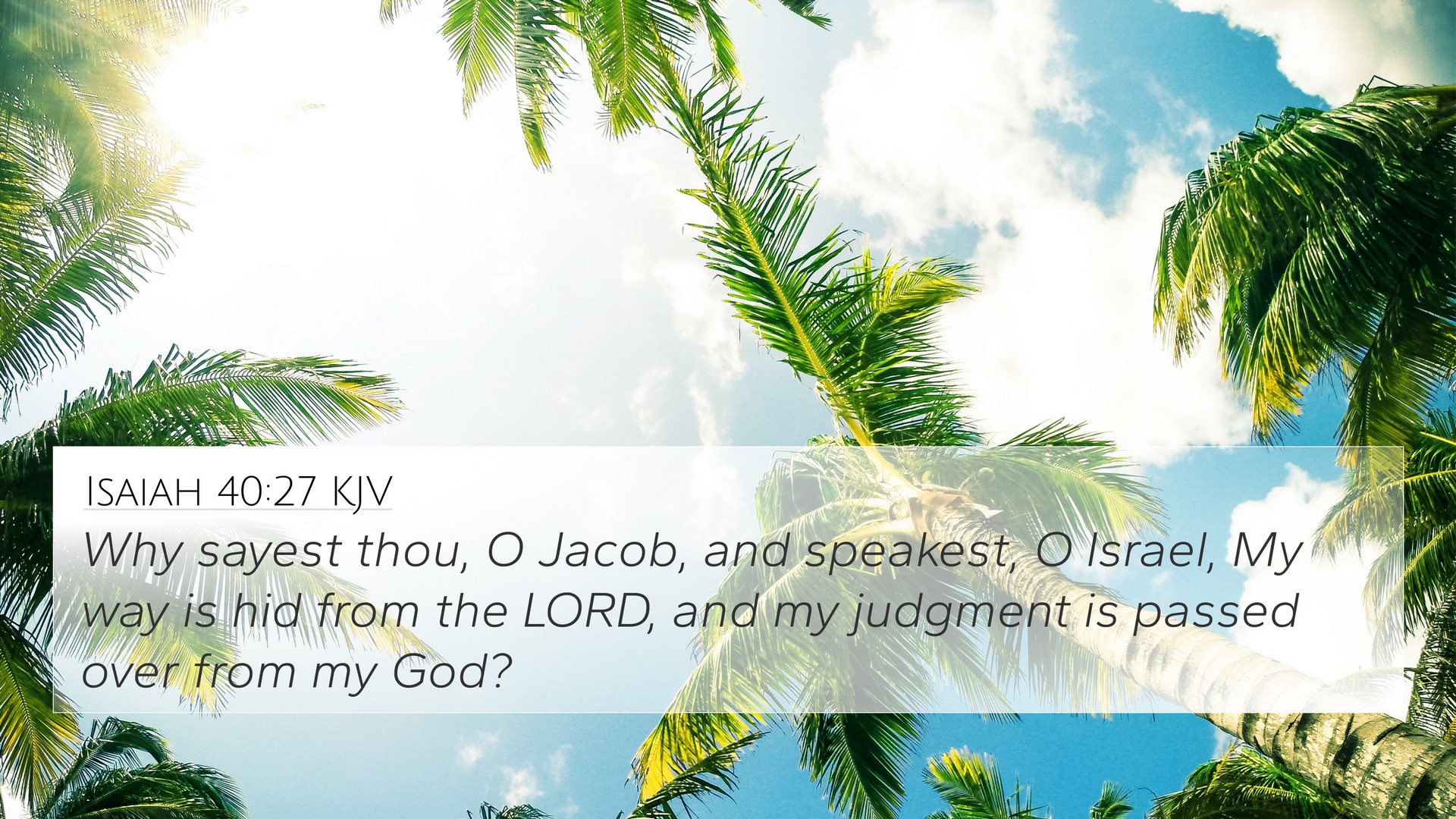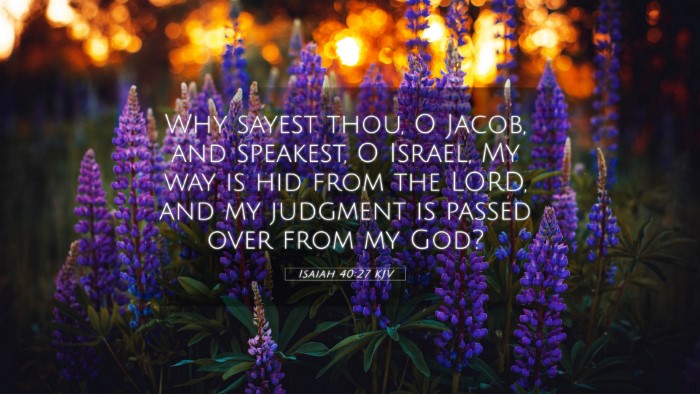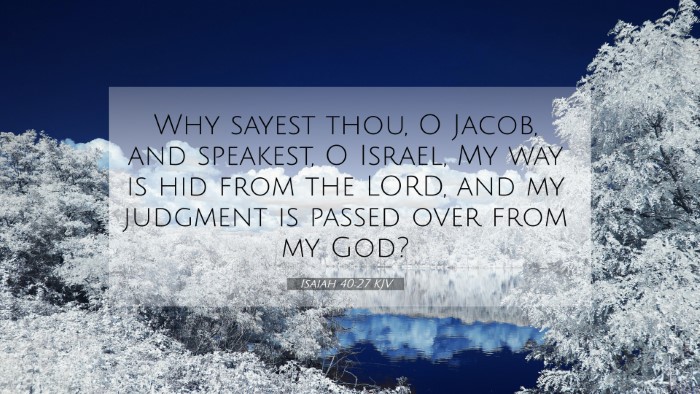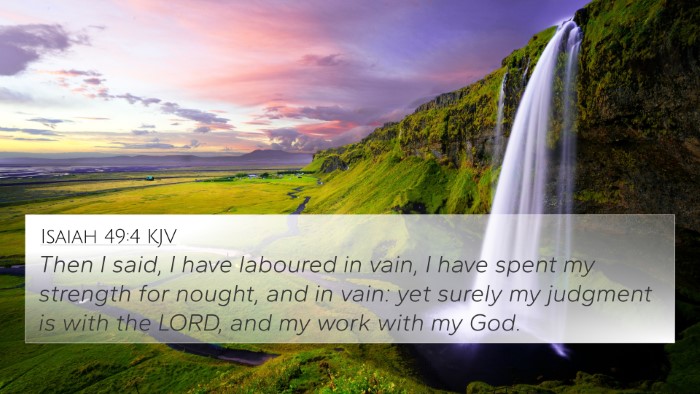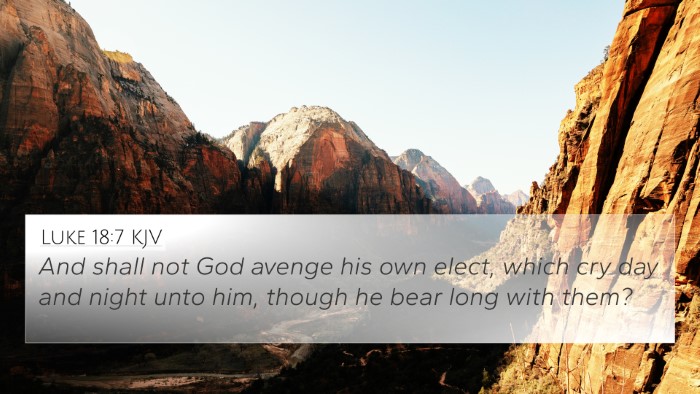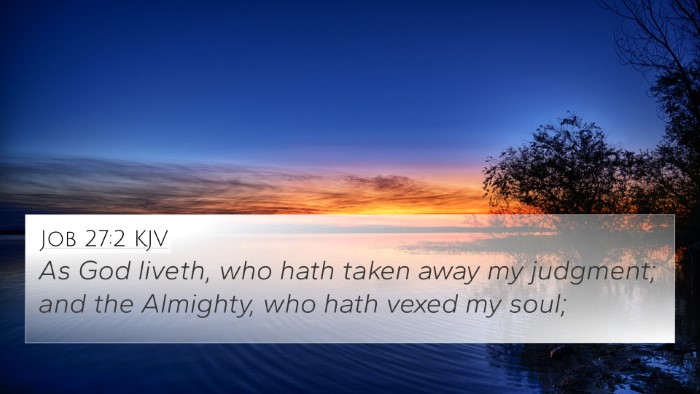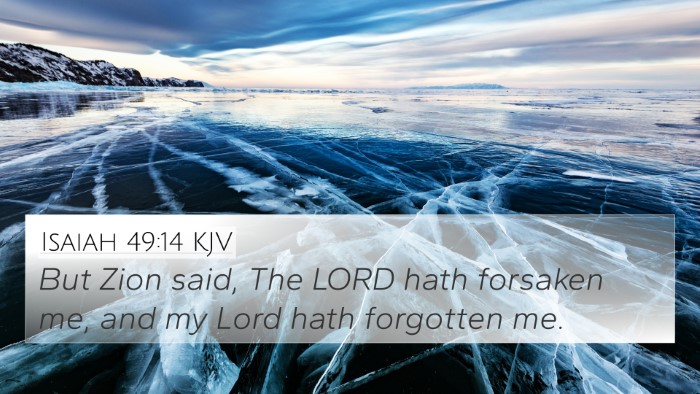Understanding Isaiah 40:27
Isaiah 40:27 reads: "Why sayest thou, O Jacob, and speakest, O Israel, My way is hid from the Lord, and my judgment is passed over from my God?"
This verse captures a moment of despair where the Israelites express feeling abandoned by God. The sentiments contained in this verse reflect a lack of understanding of God's omnipresence and His providential care.
Contextual Background
The broader context in Isaiah 40 addresses the comfort God offers to His people after their exile. Through prophet Isaiah, God reassures them of His enduring love and power, countering their fears with messages of comfort and strength.
Commentary Insights
Matthew Henry
Matthew Henry emphasizes the foolishness of believing that God is unaware of one's struggles. He notes that God's understanding exceeds human comprehension, and thus, the idea that human grievances can go unnoticed by God is a profound misunderstanding of His character.
Albert Barnes
Albert Barnes explores the hopelessness expressed by Israel, suggesting that the verse reflects deep feelings of isolation from God's care. Barnes underscores that the lamentation indicates a pivotal moment where the Israelites are called to return to faith in God's sovereignty.
Adam Clarke
Adam Clarke stresses the importance of divine oversight in human affairs. He proposes that the Israelites question their suffering, forgetting that God's ways are not easily discerned. Clarke encourages readers to recognize that even in struggle, God's purposes are intact and purposeful.
Cross References
Isaiah 40:27 can be linked to several other scriptures that provide deeper understanding and reinforce the themes contained within. Here are key cross-references:
- Psalm 10:1 - "Why standest thou afar off, O Lord? Why hidest thou thyself in times of trouble?"
- Isaiah 49:14 - "But Zion said, The Lord hath forsaken me, and my Lord hath forgotten me."
- Lamentations 3:19-20 - "Remembering mine affliction and my misery, the wormwood and the gall."
- Matthew 28:20 - "Lo, I am with you always, even unto the end of the world. Amen."
- Romans 8:31 - "If God be for us, who can be against us?"
- Hebrews 13:5 - "I will never leave thee, nor forsake thee."
- 1 Peter 5:7 - "Casting all your care upon him; for he careth for you."
Thematic Bible Verse Connections
The verse serves as a pivotal exploration of the themes of isolation and divine oversight. They reflect a cry for understanding and recognition from God amid trials. The contrasts in these verses reveal the ongoing struggle of faith that believers endure.
Practical Application
Believers today can find assurance in Isaiah 40:27 through understanding that God is always present and aware of their circumstances. Like the Israelites, one may traverse through feelings of abandonment, yet this verse encourages turning back to the acknowledgment of God's infinite knowledge and care.
Tools for Biblical Cross-Referencing
To delve deeper into the connections between Bible verses, consider using a Bible concordance or Bible cross-reference guide. These resources can aid in discovering related themes and parallel verses that illuminate the interconnectedness of Biblical texts. Utilizing available cross-referencing Bible study methods can also significantly enhance one’s understanding of scriptural contexts.
Conclusion
In Isaiah 40:27, the cry of the Israelites resonates deeply with many today who may experience a sense of isolation. As believers engage in comparative Bible verse analysis, they can uncover threads of hope interwoven throughout Scripture, culminating in the assurance of God’s unchanging nature.
